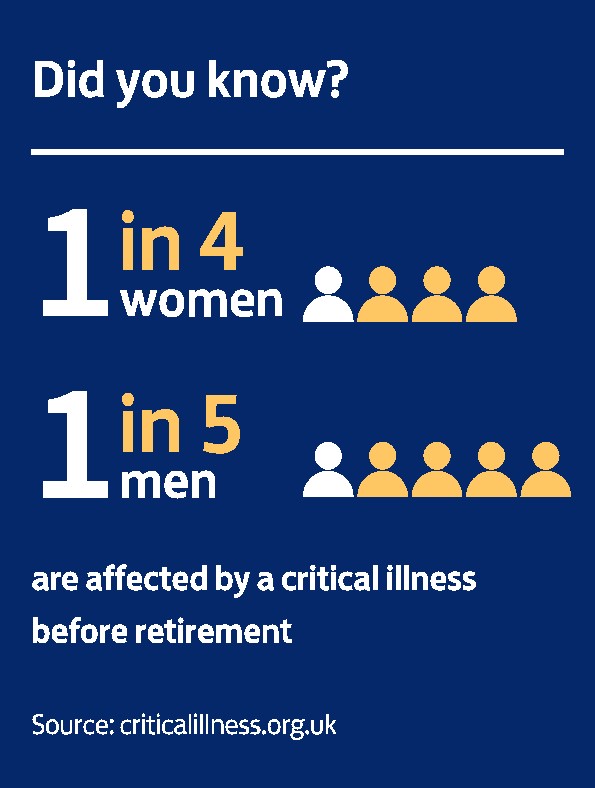
The availability of critical illness cover, like any other benefit or insurance offering, can vary from one organisation to another, and the decision to provide such coverage depends on several factors. Here are some reasons why critical illness cover might not be as commonly offered by organisations like the Police, NHS (National Health Service), and workplaces in general:
- Cost: Critical illness cover can be expensive for employers to provide, especially if they have a large workforce. Premiums for this type of coverage can be significantly higher than those for basic life insurance or health care coverage. Employers may prioritise offering benefits that are more cost-effective for the organisation.
- Individual Choice: Employees have diverse needs and preferences when it comes to insurance and benefits. Some individuals may prefer to purchase critical illness cover independently, tailoring it to their specific circumstances and needs. Employers may choose to offer more flexible compensation packages, allowing employees to make their own choices regarding insurance coverage.
- Complex Administration: Managing critical illness cover for a large workforce can be administratively complex. Unlike life insurance, which typically pays out upon death, critical illness claims can involve a wide range of medical conditions and eligibility criteria, making claims processing more intricate.
- Availability of Public Healthcare: In countries with strong public healthcare systems like the NHS in the UK, some critical illness expenses may already be covered by the government. This can reduce the perceived need for additional critical illness coverage by employers.
- Focus on Core Benefits: Employers often prioritise core benefits like health care, retirement plans, and disability insurance, as these directly impact employees’ well-being and financial security. Critical illness cover may be considered more of a supplemental benefit and not deemed as essential as other forms of coverage.
- Legal and Regulatory Considerations: Employment laws and regulations can impact the types of benefits that employers are required or encouraged to offer. These regulations can vary by jurisdiction and industry, influencing the types of insurance and benefits provided.
- Employee Preferences: Organisations may conduct surveys or engage in discussions with employees to understand their preferences when it comes to benefits. If critical illness cover is not a high-priority request among employees, employers may be less inclined to offer it.
While critical illness cover may not be offered as commonly as other benefits, it’s essential for employees to explore their individual insurance needs and consider purchasing critical illness coverage independently. Contact TF for further information.